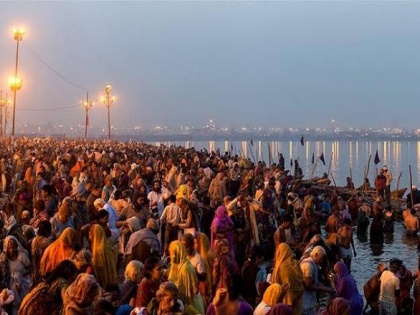Makar Sankranti 2024: History and Significance of the Auspicious Festival
By Lokmat English Desk | Published: January 9, 2024 11:42 AM2024-01-09T11:42:41+5:302024-01-09T11:44:50+5:30
Makar Sankranti is one of the biggest festivals that is celebrated all over India and other parts of South ...

Makar Sankranti 2024: History and Significance of the Auspicious Festival
Makar Sankranti is one of the biggest festivals that is celebrated all over India and other parts of South Asia. This festival usually falls in January after Lohri and this year, it will be celebrated on January 15. This year, The auspicious timing of Makar Sankranti will start at 02:54 am IST. . Meanwhile, the Makar Sankranti Punya Kala will last from 7:15 am to 8:07 pm spanning 10 hours 31 minutes and Makara Sankranti Maha Punya Kala will begin at 7:15 am and will conclude at 9:00 am spanning 1 hour 45 minutes.
History
If one dies on the day of Makar Sankranti they go straight to paradise, according to popular belief. As mythology states, Sankranti was a Hindu deity who killed a demon called Sankarasur on the following day of Makar Sankranti. The day is called Karidin or Kinkrant while Devi killed the villain Kinkarasur. In different states, it is celebrated with different names, traditions, and festivities.
Significance
The harvest festival is dedicated to the Sun God called Surya and marks the sun's transit into Makara (Capricorn) Rashi (zodiac sign). The festival is celebrated in the Indian Subcontinent and by Hindus all over the world. Considering the sun's northward journey, Makar Sankranti marks the end of the winter season. This auspicious period is also known as Uttarayan and marks the beginning of longer days.
Celebrations
The Makar Sankranti festival is known by several names based on the region where it is celebrated. North Indian Hindus and Sikhs refer to it as Maghi, which is preceded by Lohri. In Maharashtra, Goa, Andhra Pradesh, West Bengal, Karnataka, and Telangana, it is known as Makara Sankranti and also Poush Sôngkrānti. In central India, it is called Sukarat, Assamese call it Magh Bihu, in Eastern Uttar Pradesh it is called Khichdi, in Gujarat and Rajasthan it is called Uttarayanan and in Tamil Nadu, it is called Thai Pongal or Pongal.